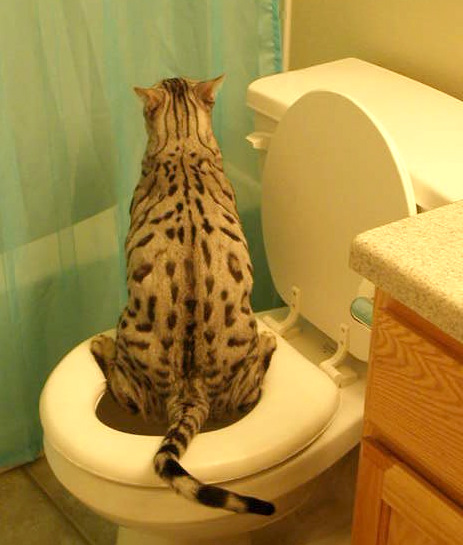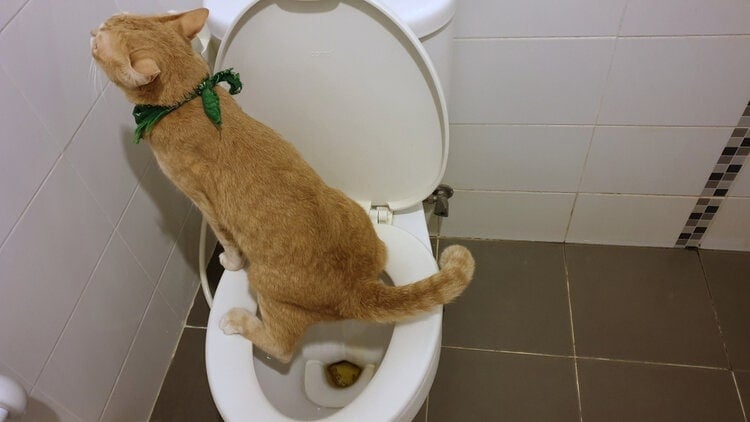The Consequences of Flushing Cat Poop Down Your Toilet - Safeguard Your Plumbing
The Consequences of Flushing Cat Poop Down Your Toilet - Safeguard Your Plumbing
Blog Article
We've come across the article involving Can You Flush Cat Poop Down The Toilet? down the page on the net and reckoned it made good sense to share it with you in this article.

Introduction
As pet cat owners, it's vital to be mindful of just how we deal with our feline close friends' waste. While it may appear practical to purge feline poop down the commode, this practice can have damaging consequences for both the atmosphere and human wellness.
Environmental Impact
Flushing pet cat poop introduces harmful microorganisms and bloodsuckers into the water system, posing a considerable threat to aquatic environments. These impurities can negatively affect marine life and compromise water high quality.
Health Risks
In addition to ecological problems, flushing feline waste can additionally pose health dangers to human beings. Feline feces might have Toxoplasma gondii, a parasite that can trigger toxoplasmosis-- a possibly extreme illness, particularly for expectant females and individuals with weakened immune systems.
Alternatives to Flushing
Luckily, there are safer and much more liable ways to deal with feline poop. Take into consideration the adhering to alternatives:
1. Scoop and Dispose in Trash
The most typical technique of disposing of feline poop is to scoop it right into an eco-friendly bag and toss it in the garbage. Make certain to make use of a committed litter scoop and dispose of the waste quickly.
2. Use Biodegradable Litter
Go with eco-friendly pet cat clutter made from products such as corn or wheat. These trashes are environmentally friendly and can be safely thrown away in the garbage.
3. Bury in the Yard
If you have a lawn, think about hiding feline waste in an assigned area away from veggie yards and water sources. Make sure to dig deep enough to prevent contamination of groundwater.
4. Mount a Pet Waste Disposal System
Buy a family pet garbage disposal system particularly created for feline waste. These systems utilize enzymes to break down the waste, reducing smell and ecological effect.
Conclusion
Responsible pet dog possession extends beyond providing food and sanctuary-- it likewise involves correct waste monitoring. By avoiding flushing cat poop down the commode and selecting alternate disposal techniques, we can minimize our ecological impact and safeguard human health.
Why You Should Never Flush Cat Poop Down the Toilet
A rose by any other name might smell as sweet, but not all poop is created equal. Toilets, and our sewage systems, are designed for human excrement, not animal waste. It might seem like it couldn’t hurt to toss cat feces into the loo, but it’s not a good idea to flush cat poop in the toilet.
First and foremost, assuming your cat uses a litter box, any waste is going to have litter on it. And even the smallest amount of litter can wreak havoc on plumbing.
Over time, small amounts build up, filling up your septic system. Most litter sold today is clumping; it is made from a type of clay that hardens when it gets wet. Ever tried to scrape old clumps from the bottom of a litter box? You know just how cement-hard it can get!
Now imagine just a small clump of that stuck in your pipes. A simple de-clogger like Drano isn’t going to cut it. And that means it’s going to cost you big time to fix it.
Parasitic Contamination
Believe it or not, your healthy kitty may be harboring a nasty parasite. Only cats excrete Toxoplasma in their feces. Yet it rarely causes serious health issues in the cats that are infected. Most people will be fine too if infected. Only pregnant women and people with compromised immune systems are at risk. (If you’ve ever heard how women who are expecting are excused from litter cleaning duty, Toxoplasma is why.)
But other animals may have a problem if infected with the parasite. And human water treatment systems aren’t designed to handle it. As a result, the systems don’t remove the parasite before discharging wastewater into local waterways. Fish, shellfish, and other marine life — otters in particular — are susceptible to toxoplasma. If exposed, most will end up with brain damage and many will die.
Depending on the species of fish, they may end up on someone’s fish hook and, ultimately on someone’s dinner plate. If that someone has a chronic illness, they’re at risk.
Skip the Toilet Training
We know there are folks out there who like to toilet train their cats. And we give them props, it takes a lot of work. But thanks to the toxoplasma, it’s not a good idea.

As a serious person who reads on Don’t flush cat feces down the toilet, I was thinking sharing that segment was important. Don't hesitate to set aside a second to promote this write-up if you liked it. Kudos for your time. Kindly stop by our site back soon.
Details Report this page